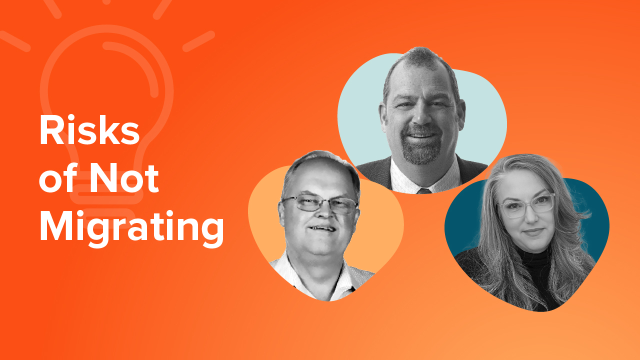Risks of Not Migrating
 07:14
07:14
Related videos
erwin Data Modeler for Database Migrations
Leverage Erwin Data Modeler for database migrations, from logical modeling to ensuring data integrity, performance optimization, and compliance in the new syste...
07:56
Leveraging DBA IDEs for Complex Migrations
Discover how utilizing integrated tools and IDEs across both source and target environments can simplify complex database migrations, improving productivity and...
04:13
Why Migrate: Common Triggers for Database Migration
Uncover key drivers for database migration, from enhancing performance to managing licensing costs and security upgrades crucial for every database professional...
04:04
Maintain Data Integrity
Delve into techniques for maintaining data integrity and validation rules during migrations, essential for sustaining data accuracy and consistency.
04:39
Retargeting: Forward/Reverse Engineering
Learn how forward and reverse engineering enable effective database migration, ensuring data integrity and optimizing system performance across platforms.
13:23
First Time? Consider "The Business" side
Learn how effective database migrations forge stronger business-IT relationships, focusing on strategic collaboration and aligned goals.
05:43
Design Lineage, Data Lineage, Semantic Lineage
Explore the crucial role of data lineage in database migrations, ensuring data integrity and traceability from source to destination.
12:22
Discovered Data Quality Issues
Address critical data quality issues uncovered during migrations, emphasizing the importance of clean data for successful system transitions.
08:59
Benefits of Database Migration
Discover the multifaceted benefits of database migration, from improved data quality and performance to enhanced scalability and access to new technologies.
03:45
Safeguarding Sensitive Data
Discover strategies for handling sensitive data during migrations, ensuring compliance and safeguarding data through meticulous documentation and modeling.
04:26
Migration Project Plan - Risks
Explore key risks in database migrations, from data loss and performance degradation to security vulnerabilities and user adaptation challenges, and learn strat...
10:33
Rollback Paths
Explore the importance of real-time replication and rollback strategies during database migrations, ensuring data integrity and minimizing downtime risks, espec...
05:16
Top 3 Considerations for a Successful Migration
Prioritize thorough planning, comprehensive data modeling, and rigorous testing to anticipate and mitigate migration challenges, ensuring a smooth and efficient...
02:58
Data Quality - Pre-Migration
Delve into the integration of data modeling with data quality remediation, ensuring a successful transition to new database platforms.
05:33
